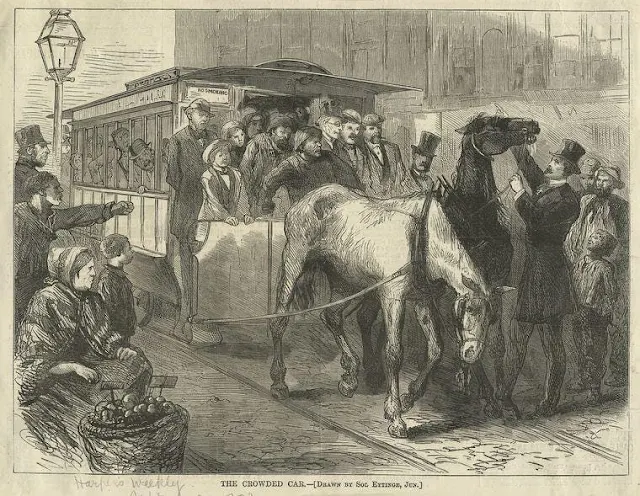 |
| Henry Bergh. Image in the public domain. |
The world and particularly Americans I feel have an obligation to thank, at this time, Henry Bergh, the founder of the American Society for the Prevention of Cruelty to Animals (ASPCA).
Nathan Winograd has reminded me of his birthday as he sent me an email yesterday. I had heard of him so I need no reminder of his history. He was a great man. Many people would agree with me.
Henry Wadsworth Longfellow wrote this about him:
Among the noblest of the land;
Though he may count himself the least;
That man I honor and revere;
Who, without favor, without fear;
In the great city dares to stand;
The friend of every friendless beast.
Winograd refers to him as 'The Great Meddler'. This is because with great commitment, passion and persistence he meddled in the lives of those people in New York City - and I guess other places - who abused animals. He fearlessly stopped their abuse.
He got New York to pass an anti-cruelty law and put a copy of that law into his pocket and then took to the streets of New York every night for the remainder of his life to protect animals against the abuse of humankind. An amazing man as I said.
I guess nobody can match that today but some come close.
 |
| Henry Bergh stops animal abuse in 19th century NYC. Image in the public domain. |
Winograd refers to a report of the time about Henry Bergh which went as follows:
The driver of a cart laden with coal is whipping his horse. Passersby on the New York City street stopped to gawk not so much at the weak, emaciated equine, but at the tall man, elegant in top hat and spats, who is explaining to the driver that it is now against the law to beat one’s animal. Thus, America first encounters ‘The Great Meddler.’
And then Winograd goes on to explain an example of his meddling. He describes one winter evening during the New York City rush-hour. People were rushing to horse-drawn carriages to get home. The horses were exhausted and flogged near to death to pull overloaded cars along a railway line.
It was snowing and the ground by slushy. When one overloaded car reached the corner near where Henry Bergh was standing the driver was about to abuse his horses again to keep them moving forwards when he heard the shout "Stop!" and "Unload!" It was Henry Bergh telling the man to stop and unload his car. The driver shouted back, "Who the hell are you?"
The driver refused to comply with Bergh's request. Bergh then pitched him into the snowbank and unhitched the horses. This, apparently was a common sight in New York City at the time.
Winograd then refers to the words of Henry Bergh himself about his day-to-day efforts to curb animal abuse under the law that he had campaigned for:
I am in slaughterhouses; or lying in wait at midnight with a squad of police near some dog pit; through the filthy markets and about the rotten docks; out into the crowded and dangerous streets; lifting a fallen horse to his feet, or perhaps sending the driver before a magistrate, penetrating dark and unwholesome buildings where I inspect collars and saddles for raw flesh; then lecturing in public schools to children, and again to adult Societies. Thus, my whole life is spent.
It paints a very hard picture. This was a man of high endurance, great commitment and persistence as mentioned. He was driven by a great compassion to help animals, those creatures more vulnerable than humankind against our exploitation.
Perhaps not many people know of his name but everybody on the planet owes him a debt of gratitude. I'm sure that millions of animals have been saved by his valiant efforts to improve animal welfare in the 19th century. He lived between August 29, 1813 and March 12, 1888. A time when animal welfare was far worse than it is today but there is still a lot of work to do.



ليست هناك تعليقات:
إرسال تعليق
Your comments are always welcome.